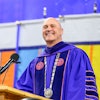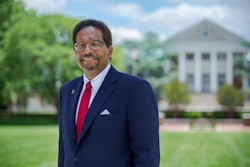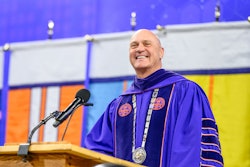Title: Assistant professor of neurobiology, University of Pittsburgh School of Medicine
Education: Ph.D., physiology and pharmacology, St. Louis University; M. S. and B.S., biochemistry, Catholic University of Valparaiso in Chile
Age: 42
Career mentors: Mark Voigt, St. Louis University; Marc Caron, Duke University; Susan Amara, University of Pittsburgh What advice do you have for new or budding faculty? “Work hard, work hard and work hard. Don’t give up. Don’t get discouraged.”
For Dr. Gonzalo E. Torres, scientific research — and academia in general — is about the freedom to break away from the herd. A Chilean-born neurobiologist, Torres was lauded in 2009 as a recipient of the Presidential Early Career Awards for Scientists and Engineers, the government’s highest honor for young professionals early in their research careers.
Torres didn’t garner that award, which includes a two-year extension on a grant from the National Institutes of Health and a reception at the White House, by blending in. His work on dopamine, a neurotransmitter in the brain, stands out for its potential to pave the way for treatments for conditions such as Parkinson’s.
“There is a difference between the ‘me too’ science,” Torres says, “and trying to develop new concepts and paradigms that change the way we think about biological systems.”
Torres began his education in Chile, receiving bachelor’s and master’s degrees from Catholic University of Valparaiso. He came to the United States in 1993 to work at a laboratory and before the decade was out had earned his Ph.D. in physiology and pharmacology from St. Louis University in Missouri. Torres credits his postdoctoral adviser at Duke University, Dr. Marc Caron, as the mentor who pushed him to develop his own unique scientific ideas. “He gave me an opportunity to become independent as a scientist,” Torres says.
By 2004, Torres had landed at the University of Pittsburgh’s School of Medicine as an assistant professor of neurobiology, combining his loves of teaching, mentoring, developing programs and research into one rewarding career.
“Since the time I was in high school, I always wanted to be associated with a university,” Torres says. “It’s sort of this place where you can express yourself in a free way and contribute to society.”















